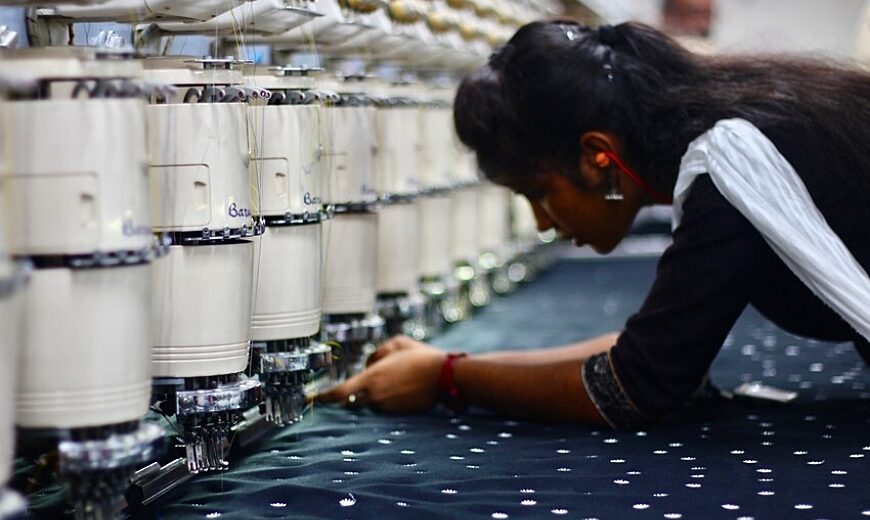The people who make our clothes cannot afford a sufficient and nutritious diet to send their kids to school, live in decent housing, or go to the doctor. This is because they earn two times less than a living wage- the salary needed to live in decent conditions. Yesterday at midnight, the Good Clothes, Fair Pay campaign, supported by Fairtrade, ended after collecting 240,180 signatures from EU citizens.
20 Jul 2023
Over 240,000 European citizens demand a living wage for the people who make our clothes around the world

Citizens demand change in how their clothes are made
240,180 EU citizens signed the Good Clothes, Fair Pay campaign, a European Citizens Initiative, asking the EU to adopt legislation requiring textile and garment companies selling products in the EU to ensure that workers in their supply chains receive a living wage.
240,180 citizens demand fairer and more transparent supply chains and want brands to be held accountable when not respecting the rights of their workers. In the context of rampant inflation, which hits us all unevenly and makes us more vigilant about the prices of our daily purchases, it is a testament to the fact that our purchasing power and attention to workers' rights are not incompatible – quite the contrary.
Citizens are ready to change how they consume but call for public policies to make companies offer better products. A survey conducted in 2020 by Oney Group and OpinionWay in France, Spain, Portugal, and Hungary, shows that 90% of European consumers are sensitive to sustainable consumption and expect brands to be committed and help them consume better. However, over half of them do not believe in brands' promises concerning sustainability.
The campaign did not reach its goal but raised awareness of the fair fashion movement
Although it did not reach the 1 million signature goal needed to demand an official response from the European Commission, the number of signatures confirms that the textile industry's impact on the human rights of its workers is an issue that mobilises increasing public support. Until recently, living wages for garment workers were rarely at the forefront of public conversation about the fashion industry's impact and were rarely included in public policies to make the fashion sector more sustainable.
Since July 2022, the Good Clothes, Fair Pay campaign has mobilised more than 50 European NGOs and trade unions and thousands of people (students, activists, consumers, members of the European Parliament, researchers, influencers, sustainable fashion brands, etc.).
During a year of campaigning for fair wages, Fairtrade has partnered with students and influencers to relay the petition to a broad audience. The movement also organised stunts in Paris and Stockholm streets for Black Friday (November 25th) to raise consumers' awareness of what hides behind brands' aggressive discounts and during Fashion Revolution Week (end of April) to call for a fast revolution toward a slow fashion. Physical events, webinars, press conferences, influencers events, and student mobilisations, were organised throughout the past 12 months.
Fairtrade will continue to work toward a fairer fashion industry
Fair remuneration is a human right. Fairtrade has been working for several years towards making this right a reality for workers and producers worldwide. This campaign was an excellent opportunity for Fairtrade to make the fight for living wages in the textile sector more tangible.
We will continue to advocate for a fairer fashion industry and for living wages and living incomes for workers and producers:
Through an ambitious EU Directive on Corporate Sustainability Due Diligence. The EU is currently negotiating new legal obligations for the most prominent companies selling their products on the EU market: they will have to identify, bring to an end, prevent, mitigate, and account for negative human rights and environmental impacts in their value chains. Negotiations between the Council, the Parliament, and the Commission are undergoing right now, and key points must be addressed for the final text to be impactful for the people in textile supply chains:
The coming months will be key for achieving ambitious and impactful legislation. Join us to put pressure on our governments and members of the European Parliament. Check out the Justice is Everybody’s Business Campaign and Action Toolkit!
Toward prohibiting unfair trading practices (UTPs) in the textile sector. The Good Clothes, Fair Pay campaign calls for the ban on unfair trading practices which cause or contribute to, harm to workers. These include, among others, payment delays, order cancellation, and prices under the cost of production. As asked by the EU Parliament in its report on the Sustainable Textiles Strategy, the European Commission should introduce legislation to prohibit UTPs in the textile sector, similar to what was introduced for the agri-food sector in an EU Directive in 2019.
Push for an enabling policy environment for living wages and living incomes. Fairtrade will continue to ask our governments to join the Joint Declaration on Living Wage and Living Income signed by the Dutch, German, Belgian, and Luxembourgish governments. They commit to collaborating to implement measures to integrate living incomes and wages into their public policies on sustainable supply chains at national and EU levels.
Fairtrade will also continue to develop and roll out our Fairtrade Textile Standard, launched in 2016 and aims to empower workers and improve working conditions in the textile industry, including implementing living wages within six years.